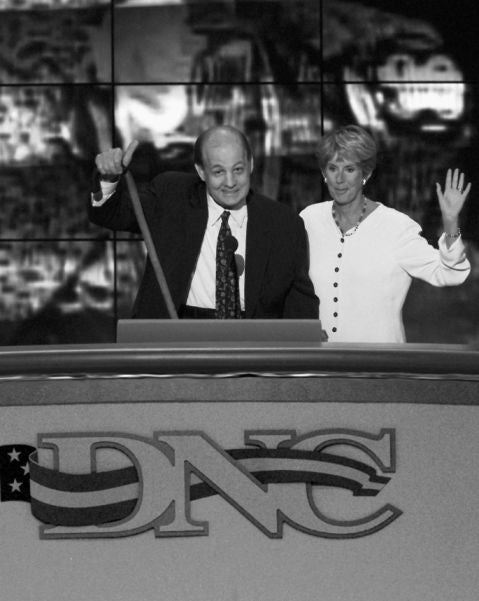Sarah Brady: Wife of Ronald Reagan’s press secretary who devoted years of her life to bringing in gun control in the US

Your support helps us to tell the story
From reproductive rights to climate change to Big Tech, The Independent is on the ground when the story is developing. Whether it's investigating the financials of Elon Musk's pro-Trump PAC or producing our latest documentary, 'The A Word', which shines a light on the American women fighting for reproductive rights, we know how important it is to parse out the facts from the messaging.
At such a critical moment in US history, we need reporters on the ground. Your donation allows us to keep sending journalists to speak to both sides of the story.
The Independent is trusted by Americans across the entire political spectrum. And unlike many other quality news outlets, we choose not to lock Americans out of our reporting and analysis with paywalls. We believe quality journalism should be available to everyone, paid for by those who can afford it.
Your support makes all the difference.One summer evening in 1985 Sarah Brady phoned the National Rifle Association headquarters and left a message: “You’ve never heard of me, but I am going to make it my life’s ambition to try to put you all out of business.”
With that call, Brady started down a road that would make her the public face of gun-control activism in the US for a generation. Her husband, James Brady, was Ronald Reagan’s press secretary who was left paralysed during an assassination attempt on the president in 1981. She was left to care for her husband through his long and at times excruciating convalescence. He died last August aged 73.
But it wasn’t her husband’s shooting that led Brady to call the NRA. The turning point came four years later, during a visit to her husband’s home town in Illinois, when their six-year-old son, Scott, found what he thought was a toy gun and pointed it at his mother. She told him never to point a gun at anyone; when he handed it to her, she found that it wasn’t a toy but a loaded .22 similar to the one used to shoot her husband. “The maddest I’ve ever been in my life,” she recalled.
Brady grew into a determined foe of the NRA. A lifelong Republican, she reached out to a small organisation, Handgun Control, now the Brady Campaign to Prevent Gun Violence, and joined its efforts by writing letters to members of Congress as well as lobbying them in person. She was the driving force behind the gun-control legislation known as the Brady Bill, signed into law by Bill Clinton in 1993.
Her speeches were often made to audiences packed with NRA members. During one 1992 appearance, at the University of Nevada, the audience in the packed gymnasium was filled with NRA supporters, many bussed in. The heckling started early and at nearly every point Brady was interrupted by shouts of “liar, liar.”
The NRA claimed that the gun-control lobby was using her to create an emotional campaign. “I think it’s hysterical,” she said, “that they talk about me being emotional, and their members around the country use scare tactics saying, ‘The liberals are taking our guns away. Do something!’” In 1990 the NRA’s chief lobbyist, James Jay Baker, conceded that she “had been very effective,” even if her influence was “based on emotion.”
Brady became a political independent as her involvement in the campaign evolved. She backed Democrats such the 2004 presidential candidate John Kerry, now Secretary of State, who supported gun control. In 1992, she supported presidential candidate Bill Clinton after President George HW Bush, a lifetime NRA member, refused to commit to supporting the Brady Bill. “The gun lobby never gives up,” she said. “You get a good law and they do everything they can to undo it.”
The NRA’s legal efforts to overturn the Brady Bill led to a Supreme Court ruling in 1997 which declared that under the 10th Amendment, state and local law enforcement officials could not be forced to handle the background checks. The overall statute, however, was upheld. A year later, the FBI’s National Instant Criminal Background Check System came online. Brady died of complications from pneumonia.
JON THURBER
Sarah Jane Kemp, gun-control campaigner: born Kirksville, Missouri 6 February 1942; married 1973 James Brady (died 2014; one son, one stepdaughter); died Alexandria, Virginia 3 April 2015.
© The Washington Post
Join our commenting forum
Join thought-provoking conversations, follow other Independent readers and see their replies
Comments